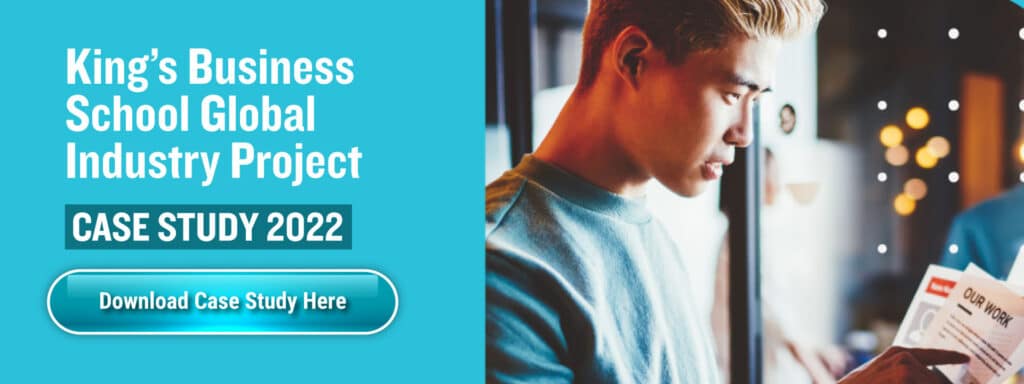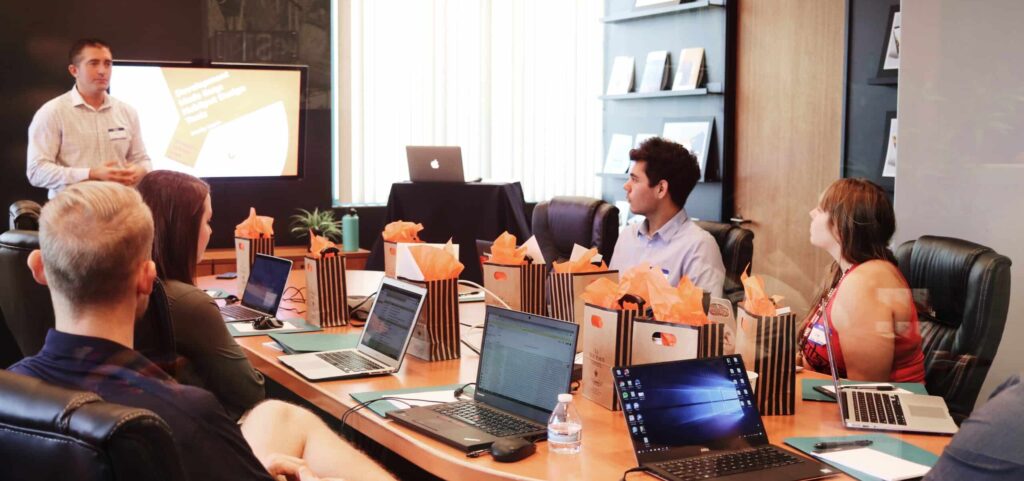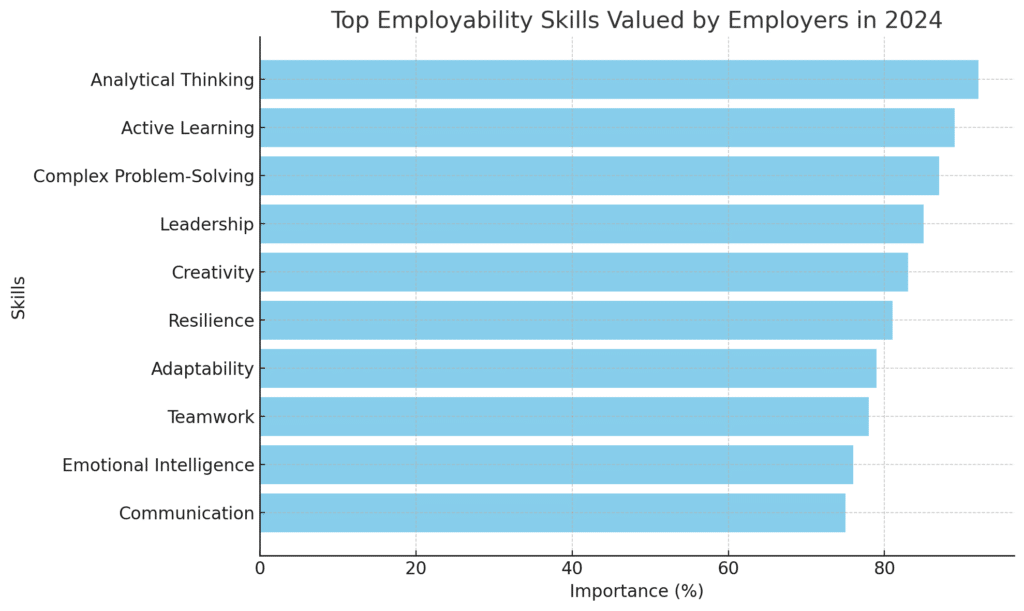5-Step Framework for Scaling Experiential Learning in Higher Education
Scaling Experiential Learning: A 5-Step Framework for Higher Education
In an era defined by rapid technological advancement and an increasingly competitive job market, higher education faces a critical mandate: to equip students not just with theoretical knowledge, but with the practical skills and competencies demanded by employers. Universities implementing experiential learning programs see remarkable results.
Experiential learning (EL) – from authentic industry projects and virtual internships to real-world challenges – is widely recognized as the most effective pathway to achieving this. Yet, for many universities, the challenge isn’t the value of EL, but its scalability. How can institutions expand these resource-intensive programs from niche offerings to core components of their curriculum, reaching thousands of students without compromising quality or overburdening faculty?
At Practera, we’ve partnered with leading universities globally to overcome precisely this challenge, empowering over 150,000 users across 70+ countries and working with over 7,000 industry project clients. Through years of dedicated innovation and successful program delivery, we’ve distilled the complex process of expanding EL into a clear, actionable 5-step framework. This isn’t just theory; it’s a proven blueprint for scaling experiential learning programs that leads to enhanced student employability and sustainable university industry projects. We specialize in providing turnkey experiential learning solutions, running end-to-end scalable industry experience programs tailored for diverse budgets and scales, encompassing a growing and dynamic project portfolio from disciplines like Data & AI, Business & Finance, Social Impact & Policy, Marketing & Communications, Sustainability & Climate, and Future of Work.
Let’s dive into the future of higher education experiential learning.
Step 1: Define Your Strategic Vision and Measurable Outcomes
The foundation of any successful, scalable initiative lies in absolute clarity of purpose. Without a well-defined vision, efforts to expand will be fragmented and ineffective.
- Beyond the Buzzword: Pinpoint Specific Learning Outcomes: Resist the urge to keep learning objectives vague. Instead of simply aiming for “teamwork,” specify “students will apply agile project management methodologies within diverse, cross-functional teams to deliver a client-facing solution.” This level of detail guides project design and assessment. Consider leveraging established competency frameworks (e.g., NACE competencies, internal university frameworks) to map skills, ensuring students develop future of work skills.
- Align with Institutional and Curricular Goals: How do your EL programs contribute to your university’s broader mission? Are they boosting graduate employment rates, enhancing student retention, fostering industry partnerships, or driving innovation? Ensure explicit links to departmental curricula to facilitate integration and academic credit. Practera offers a “library of project types, durations & levels” and can curate projects from thousands of employers globally, ensuring perfect alignment with your specific learning requirements across diverse disciplines such as Data & AI, Business & Finance, Social Impact & Policy, Marketing & Communications, Sustainability & Climate, and Future of Work.
- Establish Clear Metrics from Day One: What does success look like, and how will you measure it? This isn’t an afterthought. This directly impacts higher education employability outcomes
Think about:- Student Learning: Pre/post-assessments of skills, rubric-based evaluation of project deliverables, reflective journals. Practera’s data shows 92% of students improve employability skills after completing programs.
- Student Satisfaction & Engagement: Program surveys, participation rates.
- Industry Partner Satisfaction: Feedback on student performance, project outcomes.
- Employability Outcomes: Post-graduation employment rates, job relevance, starting salaries.
- Program Efficiency: Cost per student, faculty time saved.
Why this matters for scaling experiential learning: Clarity provides a consistent foundation. When you scale, you replicate a successful model. Without a clear definition of success, you risk scaling inefficiency or programs that doesn’t truly deliver on its promise.

Step 2: Leverage a Purpose-Built Technology Platform (The Scalability Engine)
This is arguably the most critical step for scaling experiential learning programs. Attempting to manage hundreds or thousands of students across multiple industry projects using spreadsheets, generic communication tools, and manual processes is a recipe for overwhelm and failure. A dedicated, purpose-built platform acts as your scalability engine, capable of supporting over 150,000 users globally.
- Automate Administrative Burdens: Imagine a system that handles student registration, project allocation, team formation, and mentor matching with minimal human intervention. This frees up faculty and administrative staff to focus on pedagogical support, quality control, and relationship building – activities that truly enhance the EL experience, rather than getting bogged down in logistics. Practera facilitates various program models, from short Nano projects (25 hours / 2 weeks) and Micro projects (50 hours / 3 weeks) to comprehensive Major projects (8-10 weeks / 80-120 hours), all seamlessly managed and delivered digitally, allowing for cost-effective scaling for diverse budgets.
- Foster Seamless Engagement through Intuitive Design: A key challenge in both traditional and especially modern virtual internships and industry projects or projects is maintaining student and mentor engagement. A platform needs:
- Intuitive User Interfaces: Easy-to-navigate apps for students and mentors encourage consistent interaction. Practera’s engaging apps for learners and mentors contribute to an 86% student and industry willingness to recommend their programs.
- Centralized Communication: Integrated chat, discussion forums, and announcement features prevent fragmented communication across multiple channels.
- Structured Workflows: Tools that guide students through project milestones, submission deadlines, and feedback loops. Practera’s platform facilitates various program types including Industry Consulting Projects, Automated Projects with AI client feedback, and Employability & Skills Modules, covering a range of disciplines.
- Resource Hubs: Easy access to project briefs, learning materials, and templates, including Practera’s pre-built content libraries.
- Unlock Deep Data with AI-Powered Analytics: Beyond just managing programs, a powerful platform provides insights. This is where AI in experiential learning truly shines.
- Real-time Performance Tracking: Monitor student progress, engagement levels, and skill development against defined competencies.
- Identify Trends & Gaps: Pinpoint common challenges, areas where students excel, or where additional support is needed.
- Prove Impact: Generate comprehensive reports that demonstrate the effectiveness of your programs, tying directly back to the metrics defined in Step 1. This data is invaluable for stakeholder reporting and continuous improvement.
The Practera Advantage: Our platform is engineered precisely for this, powering award-winning national and global programs through its versatile capabilities. Practera offers turnkey experiential learning solutions where they manage all aspects, providing a fully supported and quality-assured service adaptable to various budgets and scales. Its customizability allows you to tailor workflows to your institution’s unique needs, while our engaging apps for learners and mentors ensure a seamless, interactive experience. Crucially, Practera’s AI-powered analytics provide the granular data you need to monitor engagement, track skill progression, and definitively prove the ROI of industry projects in higher education, making scaling not just possible, but demonstrably impactful. This includes the capability for Automated Projects with AI client feedback, which provides immediate, scalable insights for learners, and supports a diverse project portfolio ranging from Data & AI to Marketing & Communications, Social Impact & Policy, and Future of Work. Whether you opt for a full turnkey managed service or a platform-only model for direct control, Practera provides the robust technology infrastructure for successful, large-scale EL.
Step 3: Cultivate and Diversify Robust Industry Partnerships
Scalability demands a consistent pipeline of high-quality, authentic industry projects. This requires a proactive and strategic approach to building and maintaining relationships with employers, as evidenced by Practera’s 7,000+ industry project clients globally.
- Articulate the “Win-Win”: Employers aren’t just doing you a favor. Highlight the tangible benefits for them: access to fresh talent, innovative solutions to real business challenges, a cost-effective way to trial potential hires, and enhanced corporate social responsibility. Frame it as a talent pipeline and innovation engine.
- Broaden Your Outreach & Discipline Focus: Don’t limit yourself to traditional alumni networks. Explore industry associations, local chambers of commerce, government agencies, and even global corporations for virtual opportunities. Diversify by industry sector, company size (startups, SMEs, large enterprises), and project type. Practera excels at this, actively sourcing curated projects from thousands of employers globally across a “range of discipline specific models.” This includes a diverse project portfolio spanning Data & AI, Business & Finance, Social Impact & Policy, Marketing & Communications, Sustainability & Climate, and Future of Work, ensuring relevant opportunities for all student cohorts.
- Streamline the Partner Experience: Make it incredibly easy for partners to participate. Provide clear, concise project brief templates, a simple submission process (ideally through your platform), and dedicated support. The easier it is for them, the more likely they are to re-engage. Practera’s turnkey solutions take this burden off universities by managing client sourcing and matching, ensuring projects are aligned to your learning requirements.
- Nurture Long-Term Relationships: Successful partnerships are built on trust and mutual benefit. Regular communication, showcasing project successes, and gathering feedback from partners are essential for repeat engagement and sustained program growth.
Why this matters for scaling experiential learning: A diverse and robust network ensures you can accommodate growing student numbers and offer a variety of experiences, catering to different disciplines and career aspirations, from Data & AI focused projects to Marketing & Communications challenges.
Step 4: Standardize and Optimize Program Delivery
To truly scale, your programs need to move beyond bespoke, one-off initiatives. Consistency in quality and experience is paramount, regardless of budget or scale, when managing programs across over 130 university partners globally.
- Develop Standard Operating Procedures (SOPs): Create clear, documented guidelines for every stage of program delivery: from student application review and project matching to project kickoff, ongoing supervision, and final assessment. This ensures consistency even as your program grows and new faculty/staff come on board. Practera offers pre-built content libraries and templates, and its programs feature “pre-defined milestones, activities and tasks” to ensure consistent outcomes.
- Invest in Stakeholder Training: Provide comprehensive training for all involved parties – faculty coordinators, program administrators, and crucially, your industry mentors. Train them on the platform’s functionality, best practices for student engagement in an EL context, and effective feedback delivery. Practera provides extensive platform training and ongoing support, with support staff consisting of experienced educators and practitioners.
- Quality Assurance Checkpoints: Implement regular touchpoints for monitoring program quality. This could include reviewing project briefs for clarity and scope, checking in with student teams and mentors, and ensuring timely feedback delivery. Proactive quality control prevents issues from escalating across a larger cohort. Practera’s programs are quality assured, achieving 86% average satisfaction.
- Leverage Managed Services or Platform-Only Flexibility: Practera provides flexible options to suit various institutional needs and budgets. Their turnkey solution offers complete end-to-end management, where Practera handles program design, client sourcing, delivery, and participant support, making it ideal for institutions looking for a streamlined, highly scalable option for programs in areas like Data & AI or Social Impact & Policy. Alternatively, the ‘Platform-only’ model allows institutions to leverage Practera’s technology, content, and templates to embed and manage their own consistent processes.
Practera’s Edge: Our platform’s customizability allows institutions to implement standardized workflows across diverse departments and program types (e.g., Skills Credentialing, Career Discovery & Networking, Innovation Challenges, and bespoke custom programs designed to specific requirements across areas like Marketing & Communications or Sustainability & Climate). This consistency, coupled with streamlined management tools and comprehensive support, ensures that quality scales alongside volume, making Step 4 achievable without sacrificing program integrity. Our ability to manage fully supported, quality assured programs with thousands of learners and hundreds of industry partners ensures a robust framework for high-quality delivery across all disciplines.

Step 5: Measure Impact, Prove ROI, and Iterate for Continuous Growth
The final, but continuous, step in scaling is demonstrating value and using data to refine your approach. If you can’t measure it, you can’t improve it, and you certainly can’t justify further investment.
- Quantify Learning Outcomes and Skill Development: Go beyond anecdotes. Use your platform’s data to show tangible improvements in student competencies. Did they develop critical thinking, communication, or problem-solving skills? How do pre-program assessments compare to post-program evaluations? Practera’s data shows a 92% improvement in student employability skills.
- Track Employability and Career Progression: The ultimate goal for many students is a successful career. Monitor graduate employment rates, the relevance of their first job to their studies, and the speed of their job search. Connect these directly to their participation in experiential learning programs, which can include 2-week Nano projects or longer Micro/Major projects in specific fields like Business & Finance.
- Assess Stakeholder Satisfaction: Gather structured feedback from students (on program experience, learning gains), industry partners (on project outcomes, student quality), and faculty (on program support, administrative burden). Practera programs consistently achieve an 86% student and industry willingness to recommend.
- Calculate Program ROI: This is crucial for internal advocacy and external funding. Consider:
- Student ROI: Enhanced employability, higher starting salaries, faster job placement.
- Institutional ROI: Increased student enrollment/retention, enhanced reputation, research opportunities from industry partnerships, faculty professional development.
- Industry Partner ROI: Solutions to real problems, access to talent, positive brand exposure.
- Compare these benefits against the total program costs (staff time, platform fees, etc.).
- Implement Iterative Improvement Cycles: Use the data and feedback collected to identify areas for refinement in your framework, program design, and delivery. Scaling is an ongoing process of optimization.
The Practera Advantage: This is where Practera’s AI-powered analytics become an indispensable asset for higher education impact measurement. Our platform centralizes all data – from student activity logs and mentor feedback to project outcomes and skill assessments. It then processes this data to provide:
- Granular Insights: Understand performance at individual, team, program, and institutional levels.
- Customizable Reporting: Generate clear, compelling reports for deans, provosts, industry partners, and even prospective students.
- Definitive ROI Proof: Quantify the value delivered, justifying continued investment and demonstrating the immense impact of your scaled experiential learning initiatives. This comprehensive data capability supports evidence-based, employer-engaged, and systematized experiential learning for accreditation and funding, across all program types and disciplines managed via turnkey solutions or platform-only approaches.

Frequently Asked Questions
Q: How long does it take to implement a scalable experiential learning framework?
A: Most universities see initial results within 6-8 weeks, with full framework implementation typically completed in one academic semester.
Q: What’s the average cost savings from scaling experiential learning programs?
A: Universities report 40-60% cost reduction in program administration while increasing student participation by 300%.
Q: Can this framework work for online and hybrid learning environments?
A: Yes, our framework is specifically designed for virtual internships and remote industry projects, making it perfect for modern educational delivery.
Conclusion: Embrace the Future of Higher Education with Scalable EL
The future of higher education is deeply intertwined with the ability to provide meaningful, scalable experiential learning. It’s no longer a niche offering, but a core differentiator for institutions committed to producing truly work-ready, adaptable graduates. By systematically applying this 5-step framework – defining clear outcomes, leveraging purpose-built technology, cultivating strong partnerships, standardizing delivery, and rigorously measuring impact – your institution can transition from delivering limited EL opportunities to transforming the educational experience for thousands of students. Practera has already successfully done this for over 150,000 learners and 130+ university partners globally, supporting a diverse project portfolio across disciplines like Data & AI, Business & Finance, Social Impact & Policy, Marketing & Communications, Sustainability & Climate, and Future of Work.
Practera is more than just a platform; it’s a strategic partner enabling universities to achieve this vision. We provide the customizability, engaging apps, and AI-powered analytics that empower you to manage, scale, and prove the value of your experiential learning programs. Our turnkey solutions offer a seamless, end-to-end service for running scalable industry experience programs for various budgets of size and scales, or you can leverage our platform-only model for direct control. We curate projects from thousands of employers globally, ensuring authentic and relevant experiences.
What are you waiting for? The future of education is experiential, and it’s scalable.
Ready to transform your programs? Contact our education specialists today.























